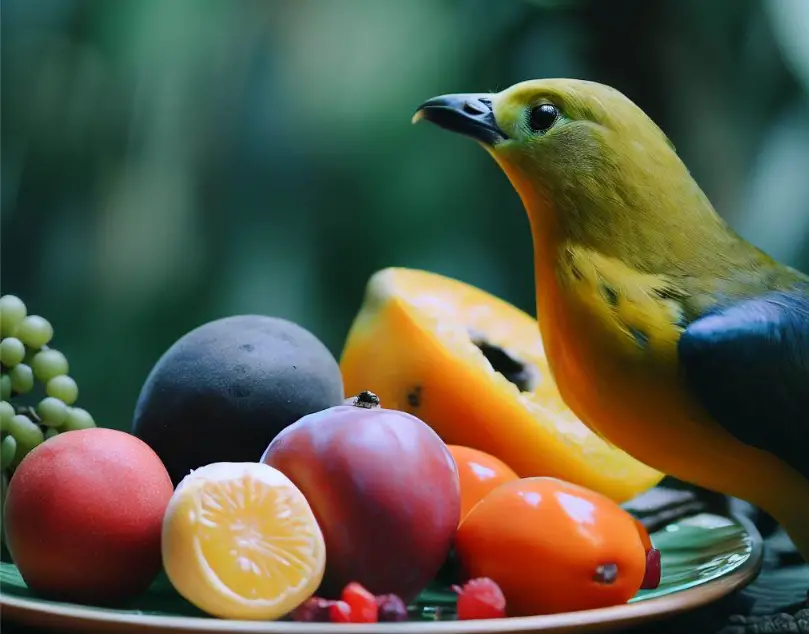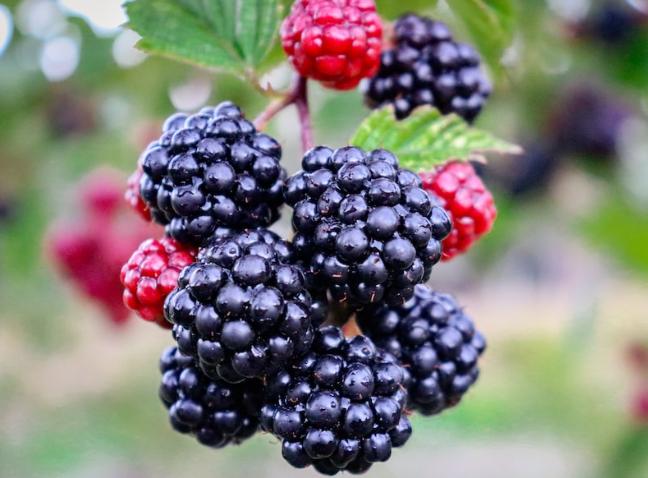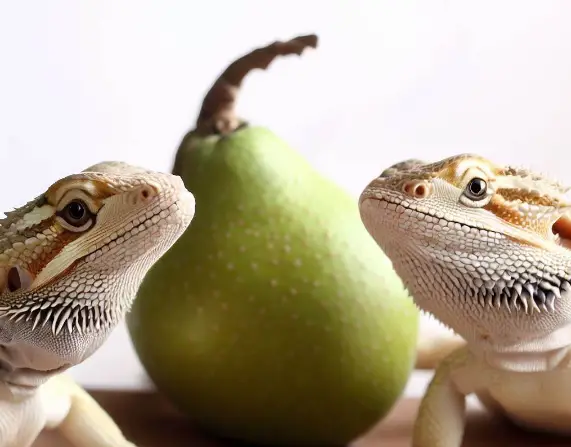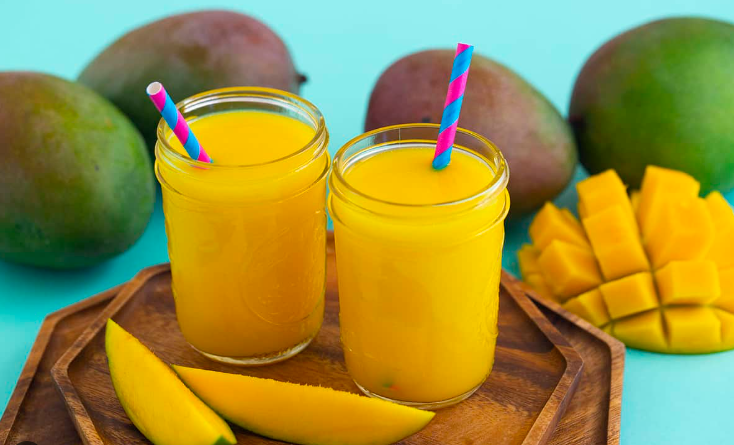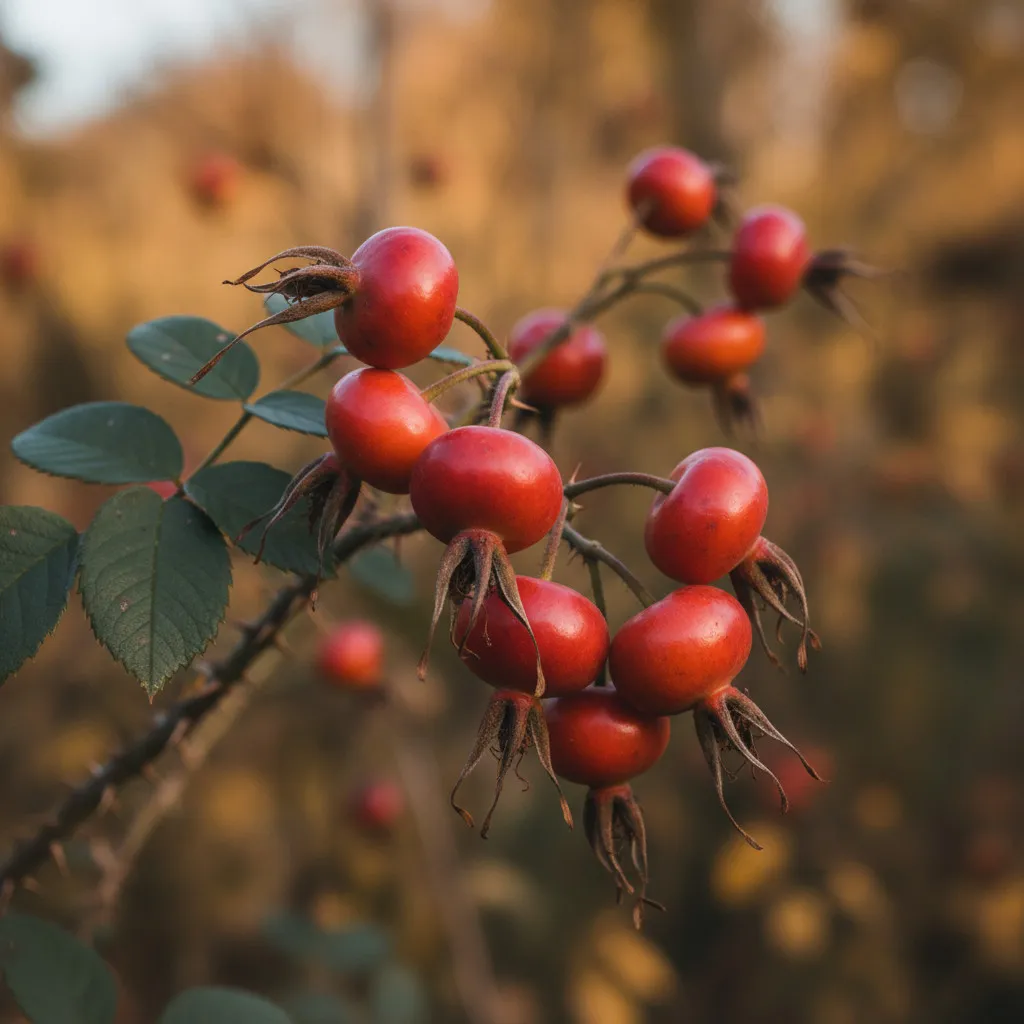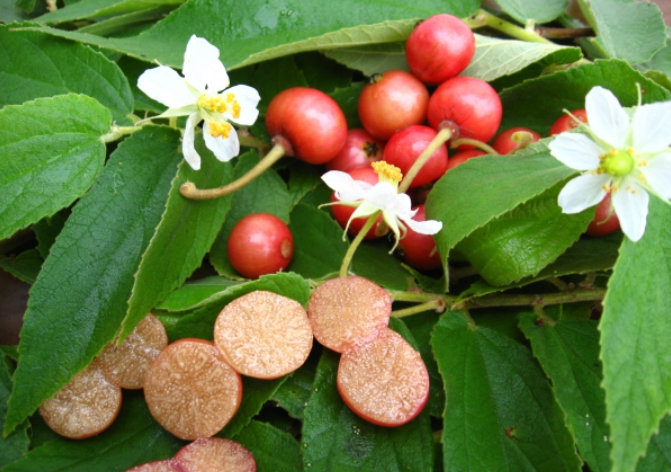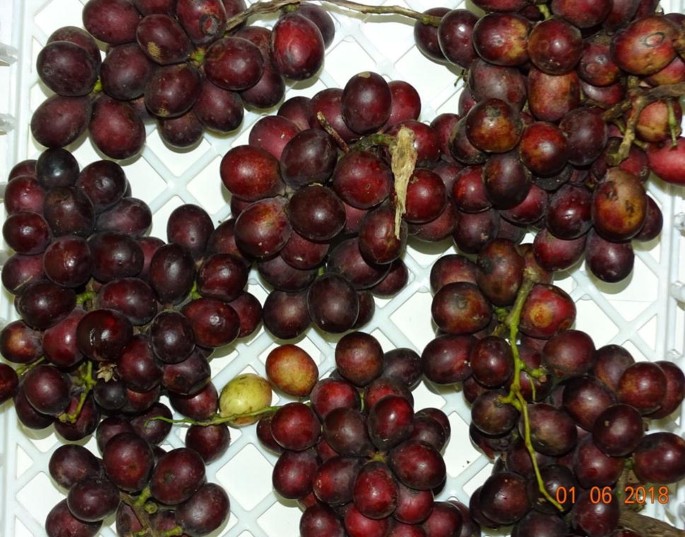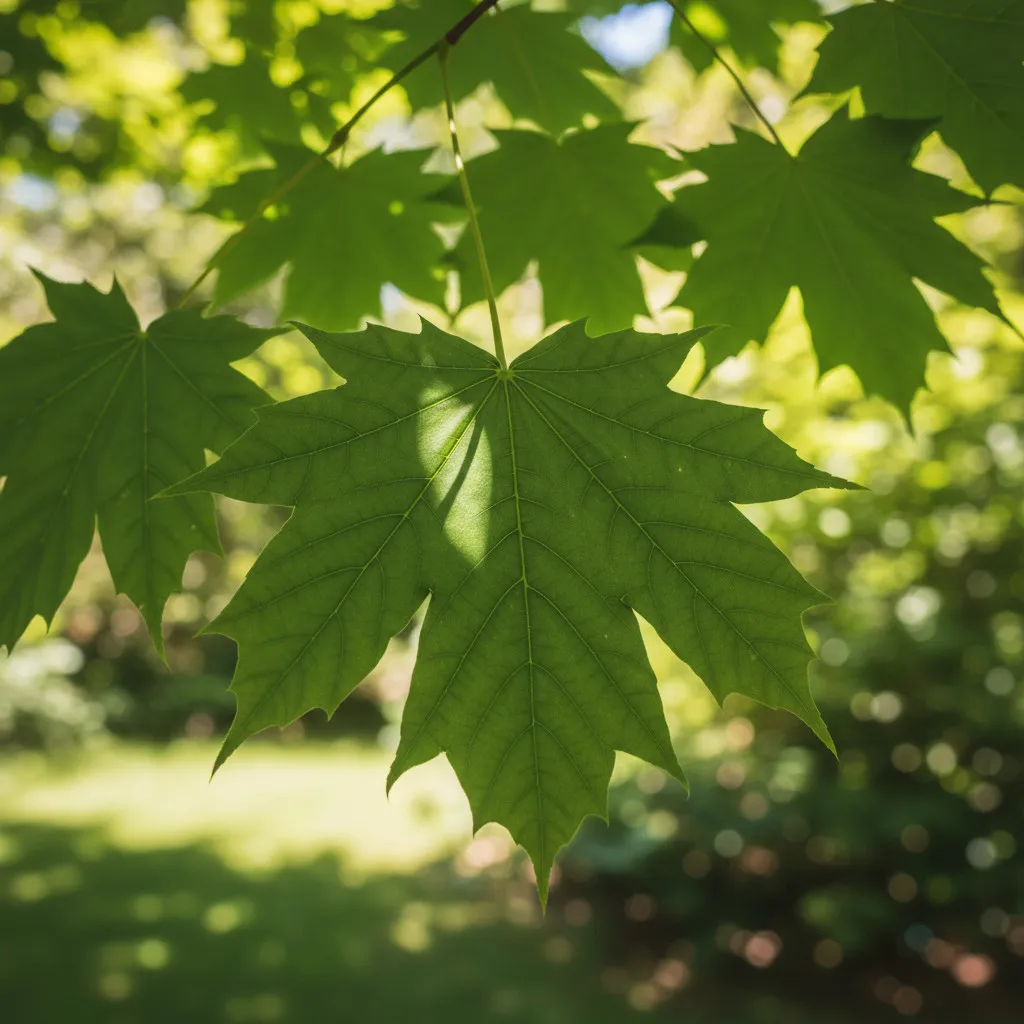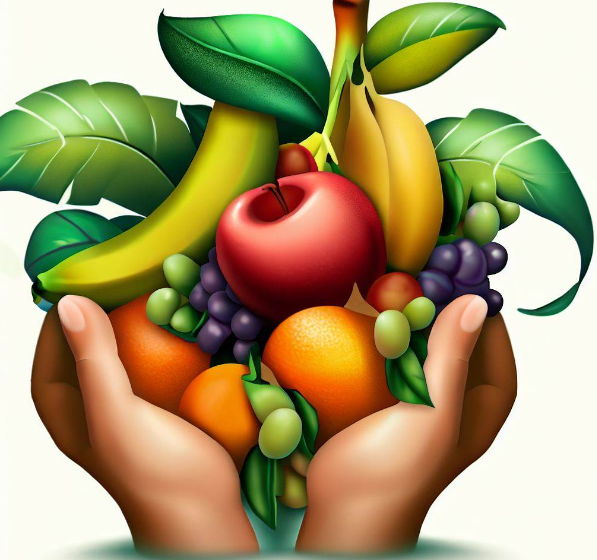Birds are not just lovely to look at in our yards, but they also have a big job in nature.
Feeding them well can keep them healthy and lively, and can even make them look prettier.
Although bird food is really good for them, fruits in their diet add even more good stuff like vitamins and minerals, making them even healthier.
Table of Contents
- Why Feed Fruits to Birds?
- What to Think About When Picking Fruits for Birds
- 15 Yummy Fruits Birds Love
- 1. Apples
- 2. Bananas
- 3. Berries
- 4. Cherries
- 5. Grapes
- 6. Kiwi
- 7. Mango
- 8. Melons
- 9. Oranges
- 10. Papaya
- 11. Pears
- 12. Pineapple
- 13. Plums
- 14. Pomegranate
- 15. Tomatoes
- How To Feed Birds Fruit Properly
- Step 1: Choose the Right Fruits Always pick fruits that are okay for birds, like apples, bananas, berries, melons, and oranges. Don’t feed them fruits with pits like avocados, cherries, peaches, and plums because they could be dangerous. Step 2: Wash and Prepare the Fruit
- Step 3: Offer Fruits Sparingly
- Step 4: Remove Seeds and Pits
- Step 5: Serve in a Clean Dish
- Conclusion
- FAQs
- Can all birds eat fruits?
- Are there any fruits that are harmful to birds?
- Can I feed my birds canned fruits?
- Should I remove the seeds before feeding the birds?
- How much fruit should I feed my birds?
- Can birds eat dried fruit?
Why Feed Fruits to Birds?
Fruits are full of things like vitamins, minerals, and stuff that stops them from getting sick. They have carbs, which give birds the energy to fly and move, and fiber, which helps their tummies work well.
What to Think About When Picking Fruits for Birds
Here are some things to keep in mind when you’re giving fruits to birds:
- Size and Kind of Bird: Different birds like different sizes of fruits. Little birds go for tinier fruits like berries, but big birds can handle larger fruits like slices of melon.
- When It’s Available: Usually, birds eat what fruits they can find easily where they live and at that time.
- Ripe and Freshness: They love fruits that are perfectly ripe and very fresh, not mushy or spoiled.
15 Yummy Fruits Birds Love
Birds enjoy a whole bunch of different fruits like apples, bananas, different kinds of berries, melons, and citrus fruits. These give them a mix of important vitamins, minerals, and fiber. They also help make their immune systems stronger and keep them from getting sick.
1. Apples
Apples are super good for birds, packed with things like fiber and stuff that stop cells from getting hurt. They also have something called pectin which helps keep their digestion in check. Just remember to take out the seeds because they’re not good for birds. Cut them up into pieces or slices to treat your feathered friends.
2. Bananas
Bananas are full of potassium and vitamins C and B6. They’ve got fiber and stuff to fight off diseases, too. And they’re easy on a bird’s stomach! Peel them and chop them into little bites for a nice snack.
3. Berries
Berries, including strawberries, blueberries, and raspberries, are loaded with vitamins and things that keep birds healthy. And fiber helps their digestive system. You can offer them fresh or frozen berries.
4. Cherries
Cherries give birds vitamin C, potassium, and fiber. Plus, they’ve got antioxidants too. But don’t forget to take out the pits because they’re not safe for birds to eat. Offer cherries as a special snack.
5. Grapes
Grapes have vitamins like vitamin C, and stuff like potassium and fiber. They’re full of antioxidants too, which keep birds healthy. Both fresh and frozen grapes are okay to feed your birdie buddies.
6. Kiwi
Kiwi is packed with lots of vitamin C, vitamin K, and fiber. It also has antioxidants that help birds stay healthy. Just make sure you peel the kiwi before giving it to the birds.
7. Mango
Mango is rich in vitamins like vitamin C and A, and minerals such as potassium. It also has fiber and antioxidants. Give them fresh or frozen mango for a tasty treat.
8. Melons
Watermelon, cantaloupe, and honeydew melons are great sources of vitamins C and potassium, plus they have a lot of fiber. They help fight off diseases too. You can serve up these melons fresh or frozen for your feathered pals.
9. Oranges
Oranges are full of vitamin C and fiber, plus they’ve got antioxidants. They also have this special thing called flavonoids. Before giving them to birds, peel them and pick out all the seeds.
10. Papaya
Papaya is another fruit that’s got lots of good vitamins and minerals, like vitamin C and A, and potassium. Plus, it’s got fiber and antioxidants. Remember to remove the skin and seeds before giving it as a treat.
11. Pears
Pears give birds fiber, vitamin C, and a mineral called copper. They’re also full of antioxidants. Just like other fruits, you can give pears to birds either fresh or frozen.
12. Pineapple
Pineapple has various vitamins and minerals such as vitamin C and manganese, along with fiber. It also has antioxidants and an enzyme called bromelain, which can help birds digest better. Serve them some fresh or frozen pineapple.
13. Plums
Plums are delicious fruits that give birds many important nutrients, like vitamins A and C, potassium, and fiber. They’re also packed with antioxidants which are great for a bird’s immune system. Plus, they don’t have a lot of calories, making them a good snack for birds who need to watch their weight.
Remember that
Plums are generally okay for most birds to enjoy. However, you should take out the pits or stones because they can be harmful. Also, give plums to birds in small amounts to prevent stomach upset.
14. Pomegranate
Pomegranates are full of good things like vitamins C and K, folate, and fiber. They are also full of antioxidants that are great for fighting off sickness and reducing swelling.
To feed pomegranates to birds the right way, you need to make sure they’re prepared well. The hard skin and seeds can be tough for birds to handle, so take the seeds out and cut the fruit into bits that are easy for them to eat.
15. Tomatoes
Tomatoes are tasty and can give birds lots of nutrients like vitamins A and C, potassium, and fiber. They also have antioxidants that help fight disease and reduce swelling.
Although tomatoes are mostly safe, you should never give birds the leaves and stems since they’re not good for them. Also, because tomatoes are acidic, they can upset birds’ stomachs if they eat too much. It’s best to give birds ripe, soft tomatoes that have been cleaned and cut into little bits.
How To Feed Birds Fruit Properly
Feeding fruit to your birds is healthy and fun for them, but it’s important to do it the right way. Here’s what you should do to give them fruit safely and in the right amounts:
![What Fruits Can Birds Eat? [15 Nutritious Fruits]](https://fruitonix.com/wp-content/uploads/2023/05/Screenshot-2023-05-11-4.13.28-AM.png)
